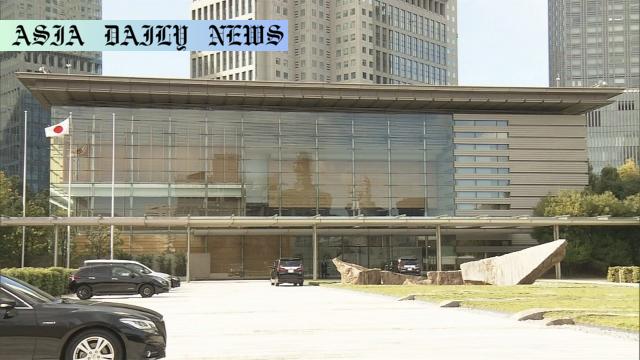Tariff: Japan to hold a task force meeting after Trump’s tariff announcement, exploring negotiation opportunities to reach a deal.

Japan Prepares to Address the US Tariff Announcement
The Japanese government has responded proactively to the recent announcement by US President Donald Trump regarding the imposition of a 25 percent tariff on goods imported from Japan. This decision, slated to take effect on August 1, has prompted immediate actions by Japan, led by Prime Minister Ishiba Shigeru. The government has quickly convened a task force meeting to assess the implications of the tariffs and devise a strategic response. This swift response reflects the gravity of the situation and Japan’s commitment to safeguarding its economic interests in the face of escalating trade tensions.
The letter from President Trump, seen as a continuation and extension of the previously paused reciprocal tariffs, has raised concerns about its potential effects on major exports, including the automotive industry. Japanese officials, including a senior member of the government, maintain that while the situation is serious, it is still negotiable. This belief seems to emphasize the value of ongoing diplomatic discussions to minimize the impact of such tariffs on Japan’s economy.
Implications for Japan’s Key Industries
The automotive sector, a cornerstone of Japan’s economy, is set to be one of the most affected industries by the tariff hike. With exports to the US constituting a significant share of Japan’s auto production, the new tariffs pose a direct threat to manufacturers, supply chain stability, and profitability. Japan’s government appears committed to resolving the matter diplomatically in hopes of avoiding any long-term consequences.
To address these concerns, Japan is keen on pursuing a comprehensive economic package deal with the US, one that could include adjustments to auto tariffs and other trade arrangements. The government believes that finding middle ground is essential not only for economic reasons but also to preserve the strong trade partnership between the two allies.
Japan’s Strategy for Negotiation and Resolution
The upcoming negotiations between Japan and the US will likely involve intense discussions aimed at securing mutual benefits while ensuring minimal disruption to Japanese exports. Experts suggest that Japan could leverage its role as a strategic ally and economic contributor to the US while emphasizing the potential adverse effects of the tariff increase.
Japan’s task force is tasked with assessing potential countermeasures while exploring ways to de-escalate trade tensions. Leveraging existing frameworks for economic dialogue and building on past agreements may provide a pathway to resolving the issue amicably. The ultimate goal remains clear: protecting Japan’s economy while maintaining a constructive relationship with one of its largest trading partners.
Commentary
The Challenges of Trade Wars: A Closer Look
Trade disputes, such as the one unfolding between Japan and the US, often highlight the complexities of global economic relationships. The recent 25 percent tariff announcement by President Trump is a stark reminder of how unilateral decisions can ripple across economies, affecting industries and governments alike. In the case of Japan, the automotive industry—an essential pillar of its economy—faces significant risks if these tariffs are implemented.
Japan’s Measured Response: A Sign of Diplomacy
Japan’s swift decision to convene a task force and its belief in the possibility of negotiation speak to its diplomatic approach to international relations. Rather than escalating tensions, Japan’s government has chosen to focus on dialogue and mutual agreement. This measured response demonstrates not only economic prudence but also a mature understanding of geopolitical dynamics. Through negotiations, both countries have the opportunity to find a solution that supports their respective economic goals while maintaining a robust trade partnership.
The Road Ahead: Navigating Uncertainty
As these negotiations proceed, there is no doubt that stakes are high. For Japan, securing exemptions or adjustments to the tariffs could mean safeguarding thousands of jobs and billions of dollars in revenue. For the US, a balanced approach could help reinforce its alliances while addressing domestic economic concerns. However, the journey toward resolution is unlikely to be straightforward, requiring concessions and compromises from both sides. Ultimately, the outcome of this tariff dispute may set a precedent for how future trade issues are addressed between global powers.


